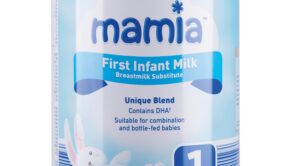In the papers this week 15 – 21 Aug 2009

Tesco to create 800 jobs in Glasgow personal finance centre; Superquinn charges €1,200 for promotional space; SIPTU serves strike notice on Coca Cola Ireland
20 August 2009
Tesco will open a personal finance customer service centre in Glasgow early next year that will create 800 new jobs, reports the Irish Times. The centre will serve Tesco Personal Finance in Edinburgh and act as another big step towards the company’s full banking endeavour. The Scottish Government awarded Tesco Personal Finance £5m to start up the centre and said it should help to improve public confidence in the country’s finances.
Suppliers have exposed Superquinn for charging extra for promotional shelf space, says the Times Online (UK). The fees include €1,200 for promotional space in freezers and shelves; €2,000 for product recalls; various charges for paperwork mistakes and unavailable products; and a ‘wastage allowance’ which requires new brands or products to compensate for wasted items in the first four weeks. Were the Táinaiste’s proposed bill to pass, Superquinn’s fees could fall under illegal “hello money”. The supermarket defended itself, saying that the rates had not changed since 2008 when the Competition Authority had approved it.
The Services, Industrial, Professional and Technical Union (SIPTU) served a strike notice on Coca Cola Ireland in response to the company’s plan to transfer and outsource 130 jobs, reports the Irish Times. According to the union, Coca Cola would not negotiate on new terms or redundancy packages after attending the Labour Relations Commission this week. SIPTU says this is the first time Coca Cola Ireland’s workers have gone on strike in the company’s 50 years.
The Times Online (UK) reports that sales of own-label products are on the rise in Britain. Datamonitor research showed that own-labels were up 2.8% since 2008, and that the range of products is much broader than last year, particularly with new premium lines to appeal to middle-class. European own-label supplier McBride says sales rose 4% this year. Some name brands do continue to perform well, such as Unilever which says they “can offer innovation, which you don’t get with own-label.”
Industry analysts do not expect Táinaiste Mary Coughlan’s proposed code of practice to be accepted by supermarkets, says the Sunday Tribune. Some say that it is too difficult to define what is considered fair negotiation or illegal extortion, and supermarkets aren’t likely to agree to something that will hurt their current practices. Retailers have expressed frustration at the government for discussing a code of practice while doing “scratch to reduce costs to businesses” like transport and wages.
Diageo, the drinks company that owns such brands as Guinness, Jameson, and Bailey’s, is suing UK supermarket Sainsbury’s for infringement of its mixed drink Pimm’s. The Telegraph (UK) reports that Sainsbury’s new own-brand called Pitcher’s is claimed to breach Diageo’s intellectual property rights. Pitcher’s is advertised as an alcoholic beverage to be combined with lemonade or fruit for “the UK’s favourite summer cocktail”. Sainsbury’s will defend itself by saying that customers are sensible enough to know the difference in what they are buying. Diageo says they hope the matter will be settled quickly and will not further affect their relationship with the supermarket.
Since cutting 350 Irish product lines from its stock, Tesco has faced allegations of importing more and more British products, but the company now defends itself as being “open for business” for Irish suppliers, says the Irish Examiner. The cuts were due to badly selling products or getting rid of a middleman who might happen to be Irish, said CEO Tony Keohane, and were essential for carrying out the Change for Good campaign to get the lowest prices. Keohane added, "Irish products are in our stores and will continue to be in our stores as long as people buy them."
Agriculture Minister Brendan Smith appealed to the European Commission to increase dairy prices and export refunds, reports the Irish Examiner. Sympathising with farmers’ struggles as the grocery sector continues to drop prices on dairy, Smith said he supported changes that would make a market impact. The next Council of Ministers will meet 7 September, where he will again address the dairy industry. His comments coincide with this week’s regional farming shows in Co. Cavan and Co. Limerick.
Norbev, the Ballymena contract bottler for brands like Coca Cola, Britvic, Vimto, and GlaxoSmithKline, has won €35m in new deals for bottling of new juices, minerals, and more over the next four years, reports the Sunday Business Post. It will reassure customers and potential clients of the company’s technical and personal qualities, says managing director David Halliday. Norbev is now hiring again for the first time since 2007.
Irish Times columnist Paul Cullen renames the popular term “Celtic Tiger” in his look back at how “Rip-Off Ireland” became “Cheap Ireland”. Big influences on living costs have been the Internet, the National Consumer Agency, the Ryanair generation, and more. The shift away from Rip-Off Ireland is far from over, Cullen says, but he can still wonder at what he used to pay for items and what bargains he brags about now.



 Print
Print






Fans 0
Followers